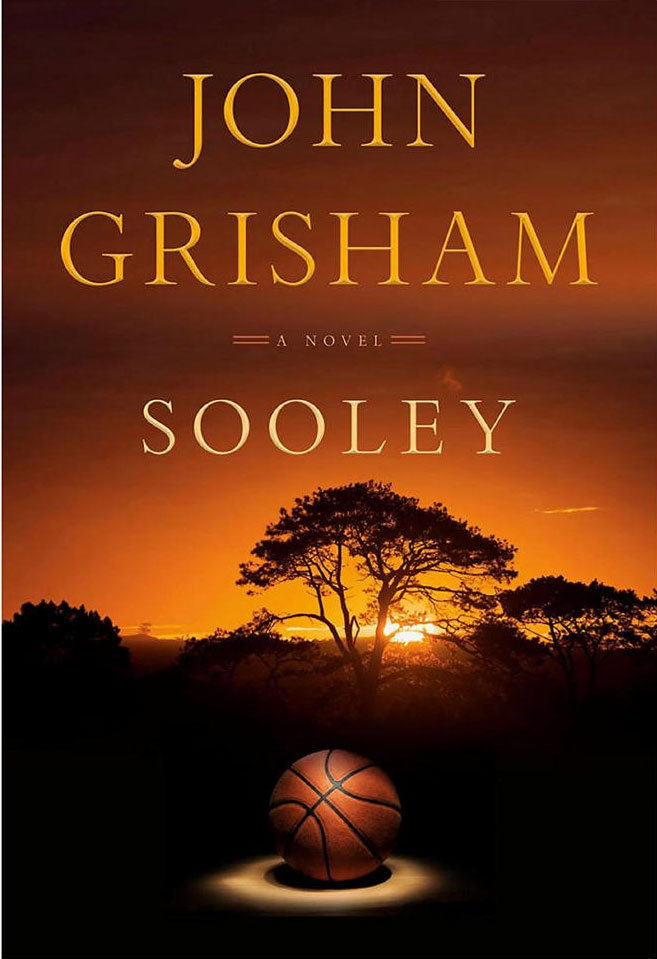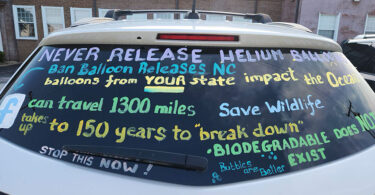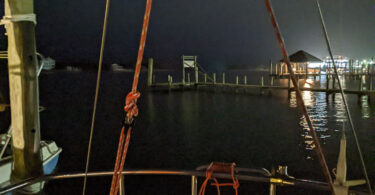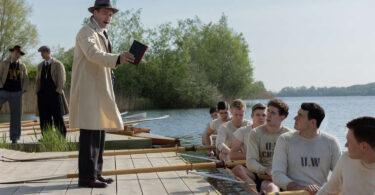Gail Arneke
SOOLEY, by John Grisham, Doubleday, 368 pages, $28.95.
Let me begin by saying that John Grisham is a great storyteller. He knows how to craft a narrative, how to keep a reader interested and involved.
Also let me say that there may be a good reason why there are few novels centered around basketball. The reader can picture the games as the author meticulously describes them, or skip over the descriptions, or imagine hearing them in Jay Bilas’s voice. Or Woody Durham’s. Or Al McGuire’s. Your choice. If you don’t know anything about the game, you won’t learn from the step-by-step presentation. If you do know something about it, it reads like every other game you’ve watched or listened to.
Truly, John Grisham is a basketball fan. A Carolina fan at that. His knowledge of the game is clear. But basketball is only one dimension of his novel “Sooley.” It is also a sort of Horatio Alger novel: A young man from an unimaginably impoverished and thus restricted world works as hard as he can and becomes something great. In another dimension the novel touches on the turmoil of South Sudan, and the perils of its inhabitants as its civil war roils on.
The plot centers around a gifted South Sudanese basketball player, Samuel Sooleymon. He is seventeen, and has been selected by a perceptive coach, Ecko Lam, to play in a showcase tournament in the US. Samuel lives in the village of Lotta, a dirt street place with few amenities and a hardscrabble living for its inhabitants. His father is a teacher in the tiny local school. Samuel has a sister and two younger brothers. His mother lives the life assigned to a woman in straitened circumstances. Lotta is a town of Dinka people, the predominant group in South Sudan. They correctly fear that the village will someday be attacked by rebels.
Samuel and his family are ecstatic when Samuel is chosen for the showcase team. Samuel has made the arduous trip to the country’s capital, Juba, to try out. He is entranced by the relatively bright lights of the relatively big city. When he makes the team, he also makes his first trip by airplane, and finds himself in the huge lights and cities of America.
Samuel, as a player, has an amazing vertical leap and great speed and quickness. However, he cannot shoot. At this point, he is six feet, two inches, and is described as a “non-shooting guard.” Efforts to slot him into a point guard role prove futile. Nonetheless, he has a career ahead in the sport he loves, if he can only overcome the shooting problem.
While the South Sudanese team is in the US, huge tragedy occurs at home. Lotta is overrun by rebels. Samuel’s father is killed, his sister is taken by the rebels, and his mother and brothers begin a long trek as refugees to find sanctuary from the fighting.
Clearly, Samuel can’t go home. Coach Lam puts out feelers to every college coach he can find. The coach at N.C. Central takes Samuel on. Aid is arranged and shortly, Samuel Sooleymon becomes an NCCU student. He works like a maniac to improve his shooting, earning his coach’s respect. He shows up at dawn to practice in the empty gym. He has a menial job for the football team, where all the players admire his spirit and nickname him Sooley.
Basketball season finds Sooley still growing, reaching six feet eight in short order. His shooting practice apparently pays off as he is soon shooting threes consistently, and Central is having a winning season. Sooley is a campus hero. Central wins the MEAC.
Meanwhile, back in college life, Sooley is assigned a charming and caring roommate, Manly Walker. Manly’s parents could not be better progressives. Mom is a legal aid lawyer; Dad runs a food bank. They take Sooley into their home when he becomes ill. They fill him with good food and sound advice on one of his two life goals—finding his remaining family and bringing him to the US. Finish college, they drum into his head.
It would be nice to think that the Walker’s name is an homage to LeRoy Walker. Given Grisham’s minimal knowledge of NCCU and Durham in general, probably not. However, as a family they are archetypically good people.
Sooley’s other life goal is to play in the NBA. So the MEAC champs are in the NCAA Tournament. However, the ruling NCAA junta decrees that it must endure a play-in game. They’re ranked sixteenth anyway, but okay. They won that game.
The alert reader can see what’s being set up when what the Central fans in the book call “The Other School in Town” is a number one seed. Has a number sixteen, or actually a minus-sixteen, ever beaten a number one? Find out.
Of course, Sooley’s stock rises with his freshman season and the NCAA tournament. He is befriended by agents and urged to enter the NBA draft. Huge amounts of money and realistic plans for getting his family out of Africa are waved in his face. Can he turn it all down? The NCCU coach is using Sooley’s success as a steppingstone to a better job. He’s outta there. Manly Walker pictures himself as Sooley’s capable, organized, and highly compensated assistant. Even the Walker parents waver. How can they tell this young person to stay at college where he’s barely passing rather than fulfill his NBA dream and go where the money is more than enough to reunite his family? They can’t. The good angels fall away at the sight of NBA money. Maybe rightly so.
No ending disclosure here, although I will say that Sooley’s family arrives safely in the US.
Grisham is a superb story teller. However, the story controls here, and the effect of the book as a whole is curiously flat. Emotion is not explored. A reader can imagine what Sooley’s mother felt as her husband died and her daughter is lost. Grisham won’t tell you about it. The entirety of the South Sudan story is told as though Grisham had been assigned an essay on the subject and waited until the night it was due to churn it out. He provides chunks of research that he tells the New York Times he gleaned from the internet without speaking to anyone involved.
At one point he evokes Manute Bol as someone Sooley consults about the NBA, but apparently he has not interviewed any of the South Sudanese NBA players. He whips out a plot that makes a satisfying respite for a long airport layover or a rainy day at the beach. Larger questions are alluded to in the narrative, but without detail or insight into what they might mean or what they might show about the culture of the NCAA or the NBA, or the turmoil in South Sudan, or about boys growing into men.







